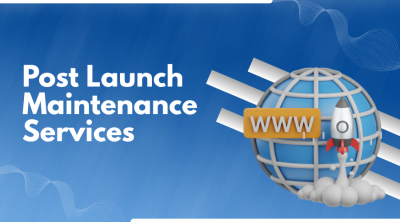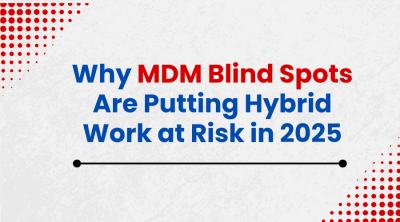What are the roles of an organization's Certified Scrum Master?

Scrum provides a solid framework for incorporating agile techniques when used on projects other than software development. This widely used method divides a project into manageable chunks and breaks each one down into shorter "sprints" that are followed by daily "scrum" meetings. Scrum consists of the Scrum master, the product owner, and the Scrum team members.
TO WHAT EXTENT DOES AN ORGANIZATION NEED A SCRUM MASTER?
Scrum is one of the most well-known and influential Agile frameworks for managing projects. Jeff Sutherland developed Scrum. It assists teams in working on complicated projects until they are finished by utilizing sprints and daily stand-up meetings. The creation of a product is typically the primary objective of a Scrum team, and the group is organized around three major roles: the Product Owner, the Development Team, and the Scrum Master. Within the context of the team, each of these members is tasked with carrying out particular duties and responsibilities.
Collaborating with all of the members of a Scrum team, from the individual level all the way up to the company level, is the responsibility of a Scrum Master in their role as a servant leader and coach for a Scrum team. The tasks they are responsible for also change depending on the member of the team they are paired with. It is the job of the Scrum Master to increase the overall team's productivity, motivation, and effectiveness in meeting their goals.

EXPLAIN THE FUNCTIONS OF A SCRUM MASTER
An Agile team's coach, motivator, and leader is called a Scrum Master (Scrum Master), often known as the "servant leader." A Scrum Master's job is to teach his or her team how to use Agile methods and to ensure that everyone on the team follows the Scrum process religiously.
A practical Scrum Master facilitates the development of a productive team culture, the maintenance of constant motion, and the exponential growth of efficiency. They are crucial to a Scrum team's success and bear most of the weight of responsibility for its development and improvement.
It is the Scrum Master's job to work with both the Product Owner (PO), whose primary concern is making the appropriate product, and the development team, whose primary concern is making the product as well as possible. Therefore, the primary responsibility of a Scrum Master is to spread awareness of and commitment to the Scrum framework's values, principles, and practices so that the team can provide the highest quality product to the client.
- Advises Teammates on a Team
The Scrum Master is the facilitator between the development team and the product owner. They can facilitate the product owner's direct involvement in driving development by serving as a link between the positions.
The Scrum Master is well-versed in the group's strengths and is always looking for new ways to aid the group in reaching its full potential.
The Scrum Master ensures that the team has received sufficient Agile training and is prepared to handle problems independently.
The Scrum Master, like any excellent coach, does not provide answers but rather helps the team find their own. The Scrum Master takes complete responsibility and ownership of the problem only in the most extreme instances when the team cannot find a resolution.
- Hosts Meeting types include Daily Stand-ups, Sprint Planning, Retros, and Reviews
All Scrum events, such as Sprint Planning Meetings, Daily Stand-up Meetings, Reviews, and Retrospectives, will be hosted and facilitated by the Scrum Master.
All Scrum events, such as Sprint Planning Meetings, Daily Stand-up Meetings, Reviews, and Retrospectives, will be hosted and facilitated by the Scrum Master.
Sprint Planning Meeting
The Scrum Master's role in this meeting is to ensure the development team doesn't take on more than they can handle in terms of Product Backlog items. Estimation support may also be necessary for a less-than-mature Scrum team.
Daily Stand-up
The Scrum Master is not expected to take part in the Daily Scrum but is responsible for ensuring that it happens on time and that the development team uses it effectively. Logistics for coordinating the Daily Scrum are made available to the development team in case they need to work across many locations.
Sprint Review
At the review meeting, the Scrum Master takes notes on the concerns presented by the stakeholders. In the retrospective meeting, team members will be asked to share their thoughts on this feedback.
Insights from Sprint Reviews
The Scrum Master leads the retrospective meeting and makes note of the team's proposed changes. In order to acquire a fresh perspective on how to optimize the process, the Scrum Master may occasionally delegate the retrospective meeting's facilitation to another team member.

- Servant-leader
There is a common perception that the Scrum Master is a servant leader. What can I do today to make you and the team more productive? is a question a servant leader always asks. instead of "what are you going to do for me today?"
His or her goal is to improve collaboration and encourage more participation from everyone. The Scrum Master is not a leader of the team per per, but rather an expert at getting the most out of everyone in the team by unleashing their full potential through positive reinforcement, empowerment, and enthusiasm.
These traits are essential for a successful servant leader:
- Possessing a Capable Ability to Listen Empathy
- Building reliable relationships by being respectful to others
- Motivating and boosting the spirits of others
The Scrum Master acts as a servant leader, with responsibilities such as:
- Fostering constructive team debate and conflict through leadership
- Coaching, guiding, and instructing the company and team in the use of Scrum
- Contributing to the group's effort to eliminate and avoid roadblocks
- Inspiring and directing the development team to take charge of their own workflow.
- Contributes to the Product Owner's understanding of the Product Backlog
The Product Owner is responsible for creating and maintaining the product backlog; however, the Scrum master assists the Product Owner in refining and grooming the tasks depending on the current status of the work and the requirements for development. With the help of the knowledge obtained from the daily stand-up meetings, the Scrum Master is in the best position to accomplish this goal. The Scrum Master contributes to the management of the product backlog by organizing review meetings and putting the order of importance on the tasks associated with user stories.
- Defends the Team against meddling from outside sources
The Scrum Master is responsible for playing the role of a guardian and assisting the team by shielding it from any outside influence that may get in the way of delivering the desired amount of business value throughout each sprint.
Interference can originate from a variety of different places; for example, supervisors who desire to refocus their team members in the midst of a sprint can be a source of interference. The Scrum Master performs the role of an interceptor and finds a peaceful solution to the problem regardless of where the interference is coming from.

- Gets rid of roadblocks
The Scrum Master's primary role is to eliminate distractions and remove impediments so that the team can concentrate on the work at hand throughout each sprint. This is crucial when the team members are unable to readily eliminate the obstacles.
For instance, the Scrum Master can work with meeting organizers to reduce the number of attendees for each meeting if team members are being compelled to attend too many meaningless meetings that do not allow them to make progress on the job. Essential members of the team only need apply. The Scrum Master can help redistribute work if a team member is being overburdened because of their participation on many teams.
Again, there could be arguments regarding the Scrum process or about the team members' preferred methods of work. The Scrum Master may call a meeting with each member of the development team to discuss the issue at hand and find a solution before it becomes a major disagreement.
- Promotes and teaches Scrum's tenets
The Scrum Master understands and implements all essential Scrum procedures and processes in accordance with Scrum's guiding principles. The Scrum Master's role is to serve as a teacher and mentor to the team, especially if some of them are unfamiliar with Agile. This person will make sure that the team's progress is not slowed down while the newcomers learn the ropes.
The Scrum Master's responsibility is to oversee the team's application of Scrum's guiding principles and practices. The Scrum master's role is that of a teacher; whenever someone falls short, he or she will provide guidance on how to better grasp the big picture and stick to Scrum's principles and procedures. The Scrum Master's role is to facilitate the enhancement of the Scrum process and the maximization of the business value produced by the Scrum team.



.png)








































Comments (0)